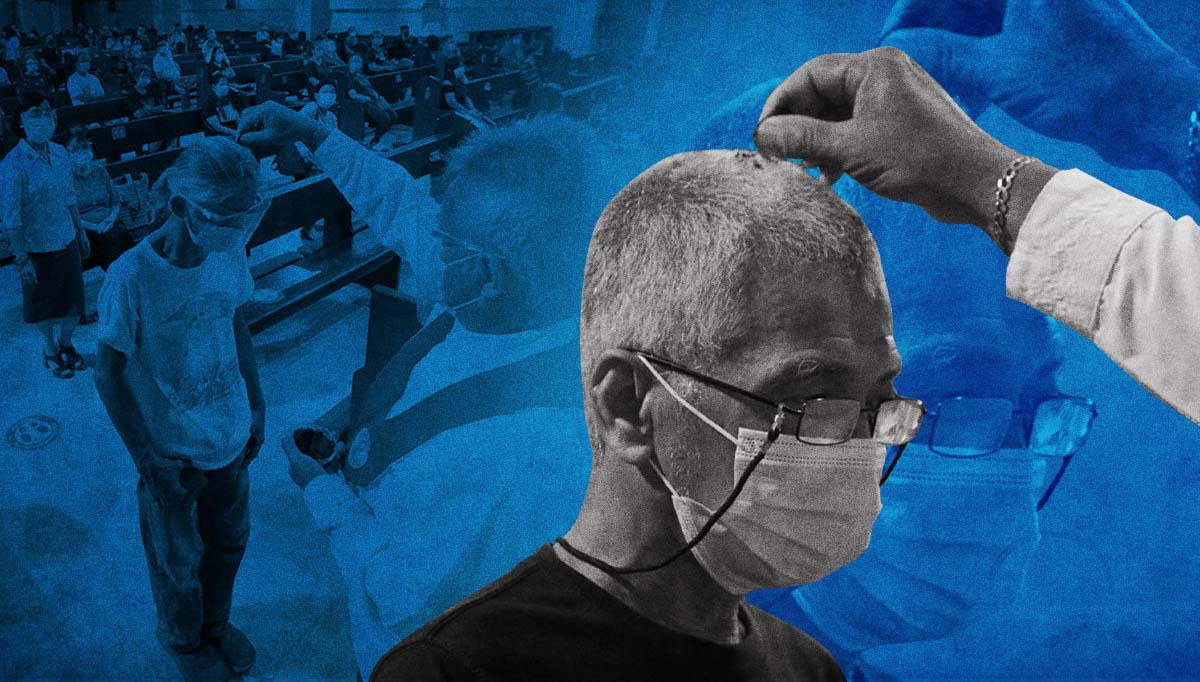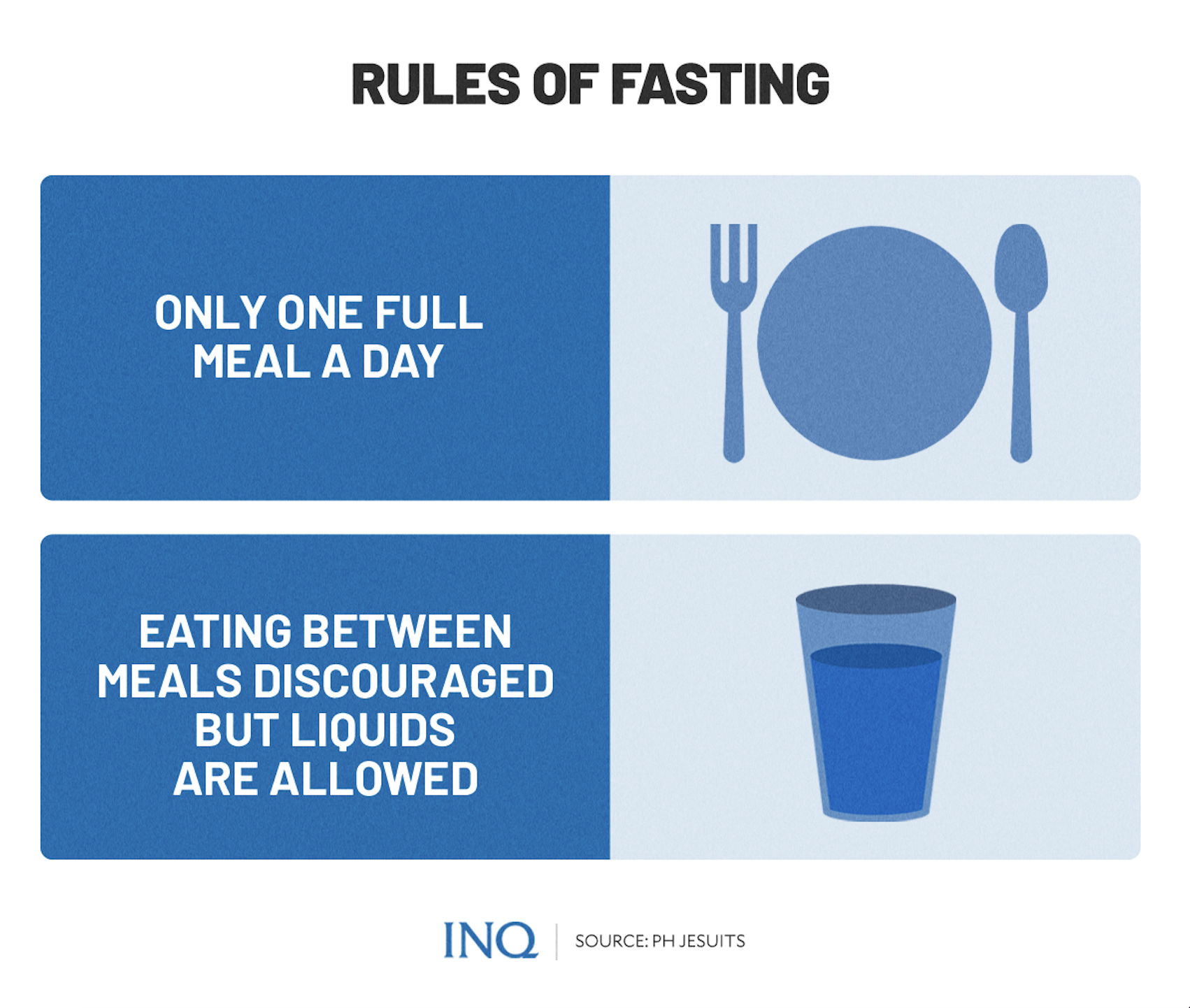Lent: Catholics reminded that piety, sacrifice not just for show
MANILA, Philippines—Lent, especially for Filipinos, is a call for sacrifice but, according to a Catholic priest, this would be “meaningless” if done only “so that people may see.”
“Kung nanatili lang sa panlabas na ritwal, at parang walang talab sa kalooban at sa ugali, [gayundin] sa paraan ng pagtrato sa kapwa, [maaaring mawalan ng saysay ang pagsasakripisyo],” Fr. Robert John Abada OFM told INQUIRER.net.
(Sacrifices this Lent could become meaningless if they remain as external rituals, or if they have no effect on our hearts and our attitude, and in the way we treat people.)
According to the website Dynamic Catholic, Lent, which is the solemn 40-day period before Easter, “holds profound significance in the Catholic Church and other Christian traditions.”
RELATED STORY: 40 days of Lent: What it’s like inside a monastery, convent
Article continues after this advertisementIt explained that Lent, which starts on Ash Wednesday and ends on Holy Thursday, is a season of penitence and preparation: “Throughout Lent, Catholics engage in the spiritual disciplines of prayer, fasting, and almsgiving.”
Article continues after this advertisement“These practices serve to deepen our connection with God, our awareness of Jesus’ sacrificial love, and to prepare our hearts and minds for the Paschal Mystery—the journey of Jesus’ passion, death, and resurrection,” it said.
READ: Lenten season: The Filipino way
As pointed out by Abada, this is the reason that sacrifices, especially fasting, which is required on Ash Wednesday and Good Friday, and abstinence on all Fridays of Lent, should not only be done to gain praise from people or project a holy image.
“Mas magiging makabuluhan [ang pagsasakripisyo] kung ang talab nito sa atin ay maging mas mapagmalasakit, mapagmahal, at maayos na makitungo sa kapwa,” he said on Shrove Tuesday, the day preceding Ash Wednesday.
(Our sacrifices can have more meaning if they inspire us to become more compassionate, loving, and sympathetic to others.)
The Catholic News Agency explained that individuals 18 to 59 years old are required to fast. They may eat one complete meal, as well as two smaller meals, which are enough to maintain strength. But, together, the smaller meals should not exceed one complete meal.
READ: Valentine’s Day meets Ash Wednesday: Navigating love amid penance
Abstinence, meanwhile, is the act of “doing without.” Canon 1250 to 1253 state that Catholics over the age of 14 are expected to abstain from eating meat on Ash Wednesday and on all the Fridays of Lent.
‘Take steps’
For Fr. Winston Cabading OP, an exorcist, fasting, the “act of doing less,” is “something we can grow into,” saying that if one is not accustomed to fasting, “it can be helpful to begin at one level and deepen your practice as you grow in your life in Christ.”
- Beginning Level
Cabading said that on any day, especially Fridays, do not eat any meat and offer a brief prayer several times throughout the day, especially for the souls of the departed. Likewise, in the season of Lent, make at least one Way of the Cross and attend the Mass each week.
“Plan your schedule so as not to eat anything for several hours before receiving Holy Communion. Do not forget to make a good Sacramental Confession,” he said in a post shared by the Santisimo Rosario Parish – UST.
Based on a survey conducted by Radyo Veritas of the Archdiocese of Manila, only 5 out of 10 Filipinos, after having reached the age of discretion, have fulfilled the obligation to confess sins at least once a year pursuant to Canon Law 989.”
- Intermediate Level
Cabading said that on fast days—Ash Wednesday and Good Friday—“do not eat anything before noon and no meat thereafter.” Likewise, while you avoid meat on Fridays of Lent, avoid dairy products, too.
“Attend two Lenten Services weekly and perform some act[s] of charity,” he said.
- Advanced Level
“Keep each day of Lent as a fast day,” he said. “Attend all the Liturgical Services during the fasting seasons.”
He said, too, that it would be best to “replace entertainments such as TV, movies, internet, shopping, etc. with prayer, spiritual reading and acts of charity. The practice can be applied to any time of the year, especially to further spiritual growth.”


